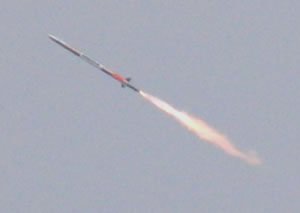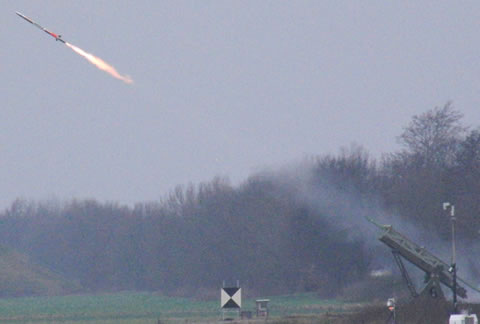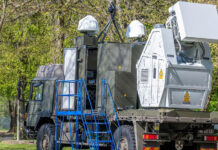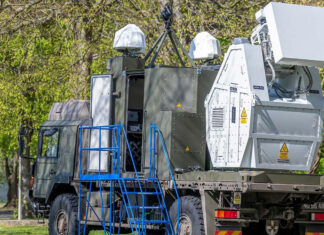
Rocket propulsion expert Bayern-Chemie has demonstrated the maturity of a gel-based rocket propulsion enabling efficient missiles, drones and rockets to implement variable-thrust, therefore extend mission range, endurance and maneuverability. According to the manufacturer, the full advantages of gelled propellant propulsion systems will be realized when they are integrated within air-to-ground or surface-to-surface missiles. Meanwhile, Bayern-Chemie considers implementing the new propulsion technology with reusable start boosters for drones, cruise missiles and aircraft.

Whilst in stored in the missile fuel tank, the gelled propellant behaves like a solid propellant, eliminating potential leaking and subsequent corrosion to the missile’s mechanical structure. Vapor pressure generated by the gel is very low, hence eliminating a “fireball” risk. On being injected into the combustor, the propellant looses its gelled structure and transforms into a liquid. Propellant feed is carried out using a solid gas generator or pressurized gas.

The benefits of this propulsion technology are the variability of thrust for mission adapted thrust profiles, the very high degree of insensitivity (no reaction at fast and slow cook-off), low smoke and low signature. Furthermore, it is an environmentally friendly propellant and exhaust gas (green propellant) and easy handling regarding the logistics chain.
Solid propelled rocket engines require complex design and manufacturing to enable variable thrust is required. Unlike liquid propellant, where propellant flow can be regulated to throttle thrust up or down. However, liquid propellant is much more difficult to store, handle and transport. Gel-based rocket propellant could provide the best combination – permitting modulation of thrust to maximize weapon endurance and performance, while offering extended shelf life and high operational readiness. The company has been developing the gel-based propellant for several years, and the recent flights prove that all functions of this gelled propellant propulsion technology have reached the TRL 6 (Technology Readiness Level 6). According to the company sources, the gel feeding system and the thrust modulation device worked as predicted during the relevant flight phases. In December 2009 Bayern- Chemie carried out a two test flights of rockets using gel-based propulsion.
The development of this technology was funded by the German BWB (the Federal Office of Defence Technology and Procurement) and carried out by in close cooperation with the BWB’s various institutes and departments. Bayern-Chemie is a fully owned (100%) subsidiary of MBDA Deutschland. The company specializes in solid rocket propulsion technology and is considered the world’s leading company in the area of air breathing, solid propellant ram rockets.
















